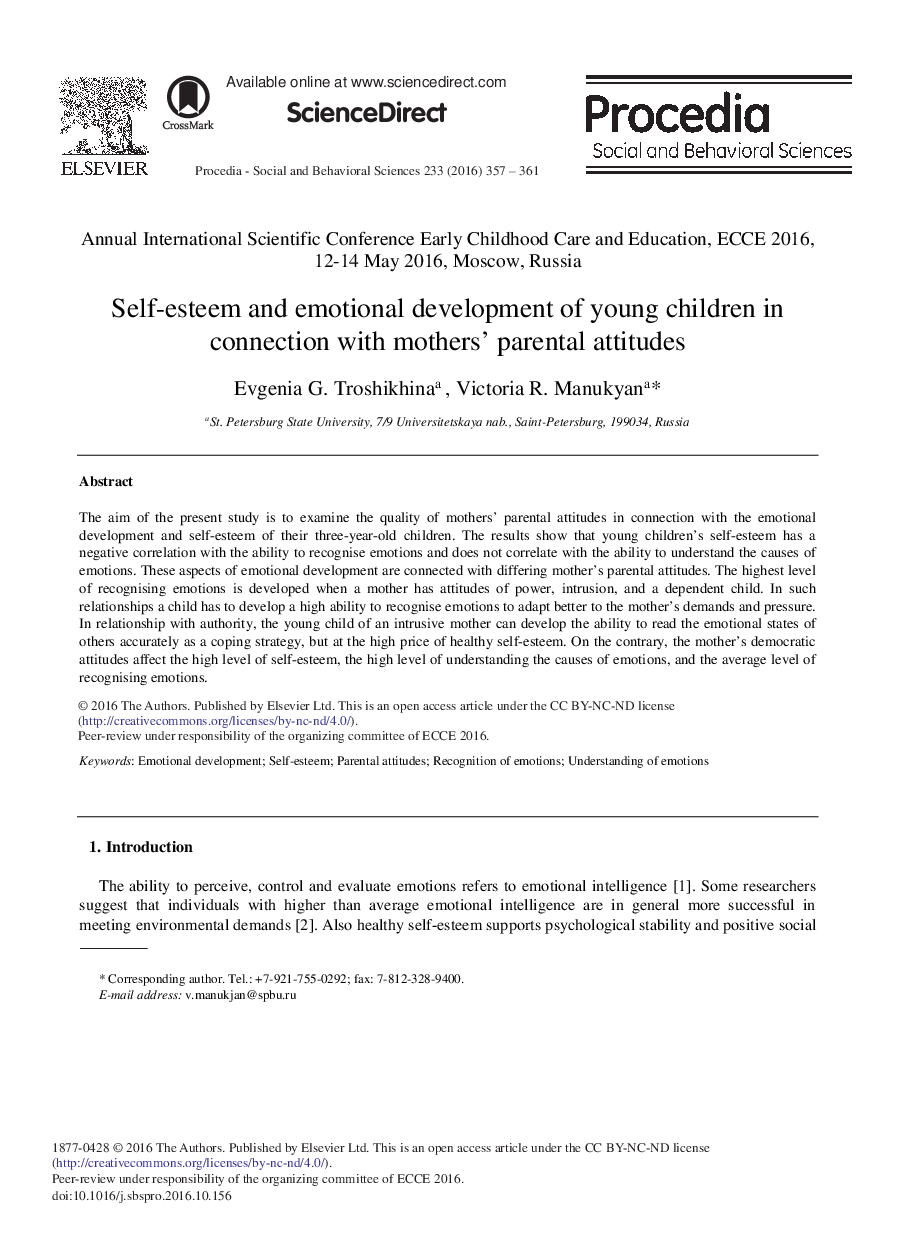| Article ID | Journal | Published Year | Pages | File Type |
|---|---|---|---|---|
| 5126188 | Procedia - Social and Behavioral Sciences | 2016 | 5 Pages |
The aim of the present study is to examine the quality of mothers' parental attitudes in connection with the emotional development and self-esteem of their three-year-old children. The results show that young children's self-esteem has a negative correlation with the ability to recognise emotions and does not correlate with the ability to understand the causes of emotions. These aspects of emotional development are connected with differing mother's parental attitudes. The highest level of recognising emotions is developed when a mother has attitudes of power, intrusion, and a dependent child. In such relationships a child has to develop a high ability to recognise emotions to adapt better to the mother's demands and pressure. In relationship with authority, the young child of an intrusive mother can develop the ability to read the emotional states of others accurately as a coping strategy, but at the high price of healthy self-esteem. On the contrary, the mother's democratic attitudes affect the high level of self-esteem, the high level of understanding the causes of emotions, and the average level of recognising emotions.
